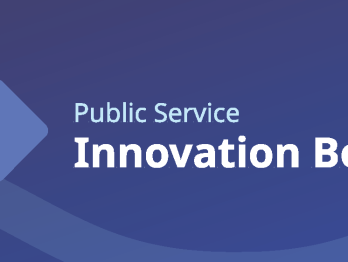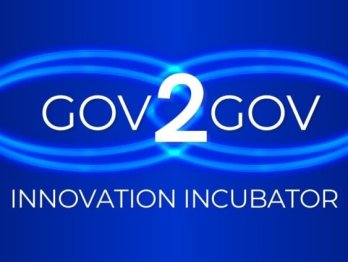Global Hack: Coming together to find solutions

Collaboration in an era of global crisis
The Covid-19 crisis has called for a new level of speed, agility and collaboration from across the public, private and non-profit sectors to find solutions. The situation evolves every day and we have to cope collectively with these new realities. One of the common responses in the call for innovative responses to covid-19 has been hackathons: bringing together teams of diverse professionals from various sectors to develop solutions to key challenges. Across the OPSI networks, we’ve seen hackathons over the past month in France, Colombia, Estonia, Poland, Latvia, Lithuania, Finland and beyond. Many of these events have come out of the realization that crisis is an opportunity to establish a new way of doing things: to make government and society better. Coming together globally around these questions, be it through a global hack, international meetings and events or regional collaboration is an opportunity to re-imagine the future of government and society.
A global hack experiment
Many of these hackathons have focused on the specific issues facing a particular country, however, from 9 – 12 April 2020, this model of problem solving will be tested at the international level in the form of a Global hack. This hack will move beyond national borders to encourage participants globally to develop solutions to challenges. Government representatives, individuals and teams that are interested in participating can join the slack channel to find a team, or can register directly on DevPost.
The Global hack builds off the momentum of the “Hack the Crisis” movement: a fast growing wave of hackathons led by the Accelerate Estonia team together with Garage 48. The movement now includes 40+ hackathons that have convened thousands of experts to find solutions to challenges raised by governments, citizens, and organizations.
Successful projects and solutions developed in many of these hackathons have been offered funding from public, private and non-profit sectors, as well as functional support including the use of online accelerators such as Wise Guys and Salto to help scale and implement solutions. Moreover, hackathons across the world can provide an opportunity to connect governments directly with those developing solutions (particularly if governments are involved in creating the challenges). Some early solutions emerging from these hackathons include applications for infection tracking, support tools for small and medium sized enterprises, face shields and 3D printing of masks.
What is truly crucial is what happens after the hack: the scaling, acceleration and implementation of solutions.
Global hack is an opportunity for governments, experts, technologists, the policy community and others around the world to work together to respond to challenges that are being encountered globally by governments and society. The organizers are inviting participation from across the world from 9 – 12 April, and encourage governments to participate in the hack to get support from “hackers” on key issues they are facing.
“The Global hack is an opportunity for the collaborative development of solutions to be even more viral than the virus itself, and to take advantage of the spillover effects of hackathons in the region to build networks and find solutions.” – Mikk Vainik (Head, Accelerate Estonia)
Mikk Vainik, co-organizer of both Hack the Crisis and the Global Hack, highlighted that this hackathon is not only about the crisis, but also what happens beyond crisis. He hopes that this hackathon will shed light on the questions: “What is going to be the new reality?” and “How can we use this crisis for good?” These questions will undoubtedly be explored by many in the weeks to come, both during and after the Global hack. The OPSI will also be focusing research and work on exploring these new realities in the lead up to the November global event, Government after Shock, which focuses on the themes of systemic change beyond crisis and rethinking and rebuilding through innovation.
Hacking for longer-term success
Hackathons have existed for many years now, and they can be great for coming up with novel ideas and approaches. Hackathons are not just about developing solutions – they are about gathering new insights, about bringing in skills and talents that are hard for governments to access, and about engaging different audiences. Sometimes the success of a hackathon can be observed in the event itself: the fact that professionals from across sectors and skillsets are working together to find solutions in a previously exclusive space. Hackathons can also serve as a Trojan Horse for technologies and alternate possibilities, which creates room for the creative innovators within constrained systems and bureaucracies to gather momentum for new ideas.
While hackathons can help participants think creatively about problems and solution development, the implementation of solutions can be challenging. If the objective of hackathons is to develop solutions that can be implemented by the public sector, consideration should be given to who is involved in posing problems or challenges, how they are participating, what the constraints are, and how solutions will be scaled and implemented after the hack. Below are some key factors to consider when designing a hackathon to help ensure that ideas can be translated into concrete action in a public sector context.
Considerations when developing scalable solutions in a hackathon context:
- Take the time to clearly frame the problem or challenge. Many guides and toolkits are available on how to frame a problem and develop problem questions. A poorly defined or nuanced problem is much more difficult to solve than a problem you have clearly defined and understood.
- Consider the involvement of problem and challenge owners in the solution development: this can be useful for framing the constraints and problem context of the implementing organization, however, attention should be paid to ensure that involving the challenge owners doesn’t lead problem solvers to lock into existing mindsets.
- Acknowledge the limitations of purely enhancement oriented and digital solutions. This is particularly important for hackathons that focus on digital enhancement, such as those that aim at digitalising and migrating processes and service delivery to tech-based solutions. These hackathons run the risk of digitalising an already ineffective process rather than addressing a complex issue at the root of a problem. The more complex the problem, or the closer it is to the digital infrastructure of a government, the less likely it is that a quickly developed digital solution will solve it.
- Ensure there are mechanisms to fund and implement solutions, such as an explicit commitment from the problem owner to test, incubate, accelerate and sustainably fund successful solutions.
In the context of hackathons for government solutions, involving government actors in the development and formulating of problem questions and challenges can increase the likelihood that solutions will come to fruition. Moreover, government and problem owner involvement throughout the solution development process can help ensure that the solutions developed will be feasible within the constraints of government infrastructure including technological rules, regulatory alignment, integration into workflows and sustainable financing. However, this involvement should be limited insofar as it restricts problem solvers to existing mind-sets and mentalities.
Solutions to implementation
Hackathons can help bring together diverse professionals to develop insights and solutions outside of the traditional constraints of governments and organizations. These solutions can, with careful testing, implementation and evaluation, show the way to new ways of operating and alternative solutions for governments and organizations. These hackathon-style events can complement the work of governments across the world with the development of intervention ideas, social solutions or product prototypes that governments can adopt or build on. While they can kick-start solution development, they are not a stand-alone solution, and careful consideration should be given to framing the problem and ensuring the right actors are involved in the development process to support the implementation of the solution beyond the hackathon event.
The Global hack is an opportunity to test a hackathon model at a global scale: to encourage global cooperation in finding solutions and developing new insights in what is a rapidly changing context. Cross-sectoral involvement, paired with a willingness of governments to participate and develop challenges for this event, could result in promising, scalable and transferable international solutions in the Covid-19 era.









